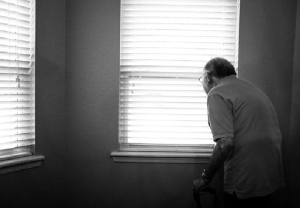Recent news and updates
Guest Blog: Physical and Mental Health Aspects of Social Care For Elderly
There are many social forms of care for seniors that provide them with assistance and companionship on a daily basis. This type of care is incredibly useful for seniors who struggle with chronic physical or mental health problems, or just seniors who are struggling to transition into retirement. There are also many memory care facilities available that provide similar services, but also offer additional services for seniors struggling with dementia or other memory issues. Before transitioning into this type of senior care, here are some of the physical and mental results of social care for seniors that you should be aware of.
Improved Moods
One of the biggest benefits of a social care structure for seniors is that it helps them keep their moods and emotions stable. Many people transitioning into senior living struggle with feeling lonely, which can in turn lead to depression and anxiety. However, having caregivers and other seniors around as social support can do wonders for improving seniors’ moods and helping them feel emotionally supported. Transitioning into retirement can be overwhelming, but having a good social support system around can mitigate these negative feelings. Social interaction is naturally stimulating and releases calming chemicals in the brain that reduce stress.
Physical Pain Management
It’s normal for seniors to experience some type of chronic pain as they get older, particularly for people who have struggled with injuries earlier in life. It can be very difficult for seniors to manage pain on their own as they get further into their later years. Having caregivers available to help with activities that cause residents pain is one of the biggest benefits of assisted living care for seniors. In many cases, caregivers can also help seniors with medication administration and gentle exercises that can prevent chronic pain from worsening.
Memory Care
Unfortunately, many seniors struggle with dementia in old age, and this is a very difficult condition to deal with by yourself. A social assisted living facility that offers memory care can make life easier to navigate for seniors who struggle with these conditions. Memory care manages the situations seniors experience on a daily basis to help them access the memory they do have, while making tasks easier to do and preventing accidents and night wandering. If you are wondering where to find memory care facilities near you, consult your local doctor, or check one of the many online guides available that list local senior care facilities.
Daily Routine and Structure
Many seniors in retirement struggle with maintaining a daily routine, which can lead to both physical and mental health problems. One of the best things about assisted living is that it helps seniors maintain an enjoyable routine from day to day. Having this kind of structure keeps seniors active and provides mental stimulation as well. While seniors still have the flexibility to enjoy their favorite hobbies and activities, as well as spending time with friends and family, living in an assisted care facility ensures they will have something to do every day.
There are many great benefits of a social care structure for elderly patients. As frustrating as it can be for seniors to lose their independence, having daily care ensures that they are living the healthiest, most comfortable life possible. It also provides their loved ones with the peace of mind they need, so they won’t have to worry about the health and safety of their relatives. There are many different types of social care for seniors, so you will be sure to find an option that works for your needs.








